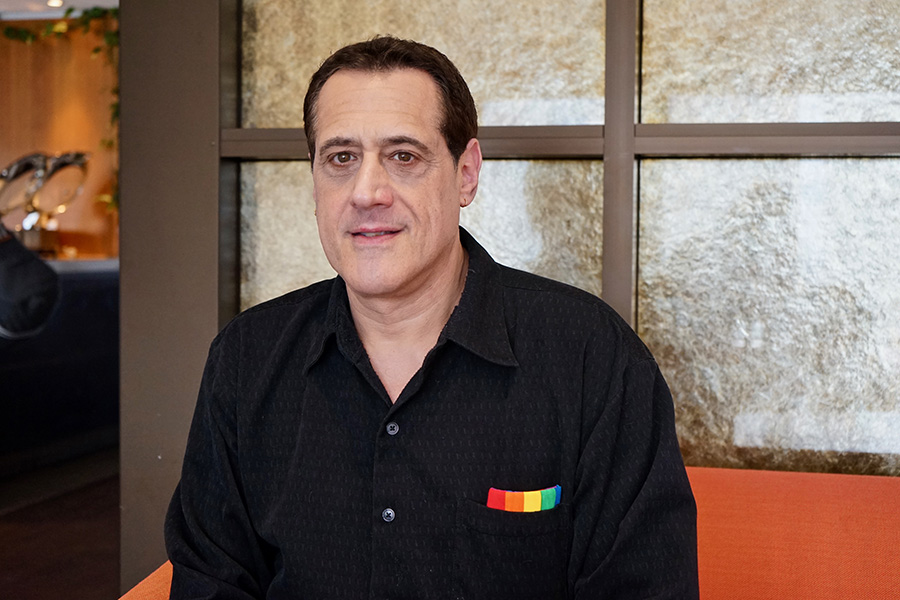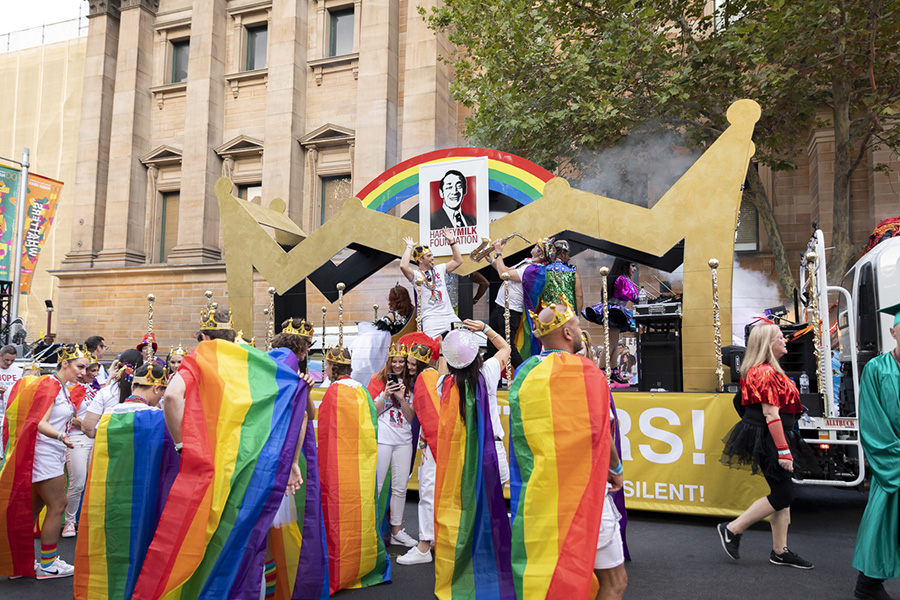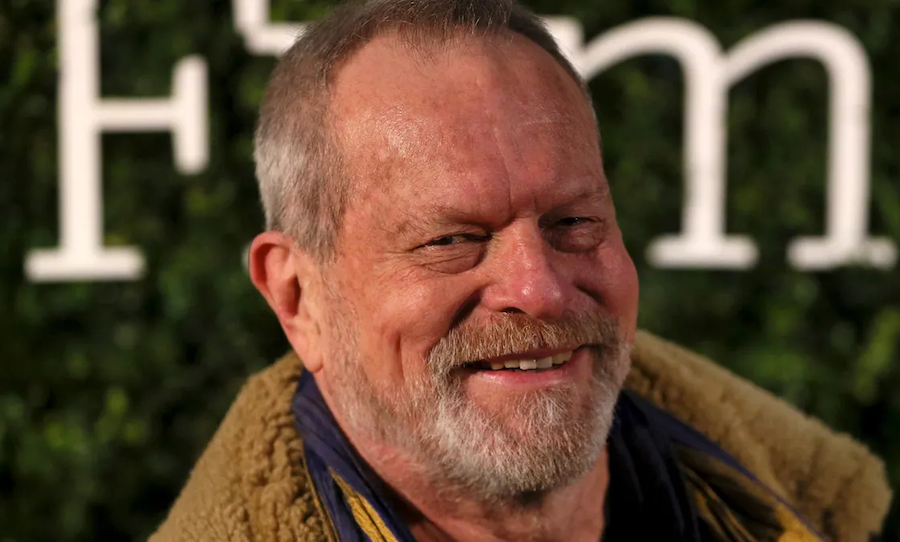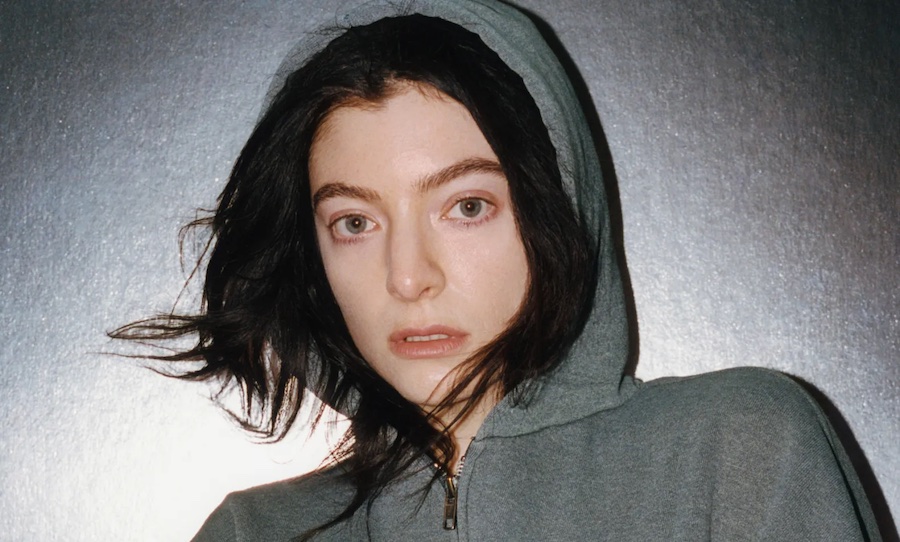“It’s not my victory, it’s yours and yours and yours,” Harvey Milk said after winning a seat on the San Francisco Board of Supervisors in 1977. “If a gay can win, it means there is hope that the system can work for all minorities if we fight. We’ve given them hope.”
A year after delivering that speech and making history, Harvey Milk helped to pass the United States’ first gay rights ordinance, which sparked the legal LGBTQI+ rights revolution. Not long after he was gunned down by Dan White, who was also serving in public office, at San Francisco City Hall on November 27, 1978. Harvey Milk was only 48.
Harvey Milk inspired future generations of LGBTQ+ people to enter politics, including his nephew Stuart – just 17 when his uncle died. Stuart Milk, who says that his uncle’s assassination inspired him to come out, is now a global human rights activist and LGBTQI+ civil rights advocate. He’s the co-founder and executive chairman of the Harvey Milk Foundation, an on-the-ground organisation for struggling and emerging LGBTQI+ communities across the globe.

Happy Mag caught up with Stuart Milk at the 2020 Sydney Gay and Lesbian Mardi Gras. We talked about the importance of his uncle’s legacy, Scott Morrison’s religious discrimination bill and viagra in the US military.
HAPPY: The theme for Mardi Gras 2020 is ‘What Matters.’ So, Stuart Milk, what matters to you? What are you willing to fight for? Who will you fight for?
STUART: The Harvey Milk Foundation joined the parade with their own float with the theme ‘Hope Matters,’ because my uncle’s message was that you cannot live on hope alone, but without hope, life is not worth living. What matters for us is that we need to continue to push forward, we have not achieved equality for everybody across the globe. We still have seventy nations where it’s illegal to be LGBT. Two thirds of the world’s population live in a place where it’s either illegal or socially unacceptable to be LGBT. So, as much as we can celebrate our advances — and we have a wonderful pride parade — we need to remember where it’s all started; as a protest march. We hope to get to the day where it’s a pride parade all around the world. It’s important to celebrate our victories, as well as to remember the intersection of communities. In places where LGBT rights advance, we see a rowback on immigrants, faith minorities, women’s rights. We need to realise that these are rowbacks to LGBT rights. We fight for everyone. We fight for justice and freedom. It’s a battle that has not been won.
HAPPY: In Australia, one very distinct threat to LGBT+ rights currently is Scott Morrison’s religious discrimination bill, which will have wide-ranging effects on many areas of public life including access to medical services, schooling, employment, social media, aged care, hospitals, and even some commercial services. For example, a Catholic doctor refusing to provide contraception to all patients or to prescribe hormone treatment for gender transition. Can religious freedom and LGBTQI+ rights coexist?
STUART: They can coexist and they have coexisted. We’ve seen, primarily due to gay marriage, major religious institutions change their policies towards the LGBT community. And I say because of gay marriage because it’s a visibility thing; you don’t go to a tolerance ceremony, you go to a celebration. It has created tremendously more visibility and people would go to their church or synagogue and say “why can’t my nephew and his boyfriend marry?” Religious institutions are like businesses, they don’t want to lose, they want to grow, and therefore they’ve changed. In the US, we see tremendous numbers of mainstream institutions changing, opening and embracing, we even have the Apostolic church saying they will ordain gay bishops, even though the Anglican church in England said, “well if you do that, you’ll have to separate from us.” I do think that faith and LGBT rights can coexist.
The bills that we see coming up are just simply ways to attack LGBT rights, they are really not efforts to maintain religious freedom. We see bills coming up all around the world. This is an attempt to take fundamental rights away and we need to treat them as that. Now in the US we have similar bills coming up, but they’ve been stopped by our constitutional court.

HAPPY: The Trump administration is taking a different line than the Obama administration on these issues. How does the US taking a step backwards affect your work, and how do you see it impacting the organisations and communities you’re working with?
STUART: I’ve worked very closely with president Obama, and we took tremendous steps forward under the Obama administration. We’ve seen the Trump administration, in certain areas, moving backwards – in particular on trans rights. For instance, in the military, you can be trans and serve, but you can’t be transitioning or changing your identity papers while you’re serving. The message that Trump gave on it was “it’s to save money, we can’t afford transitioning services.” But if you take every single trans person that has ever served in the military since they’ve been legally able to serve, and you add up the cost for the military to pay for their transitioning services…
HAPPY: How much?
STUART: It’s less than one week of viagra, which the military supply to all of its men! So yeah, Trump’s argument is a false argument and we need to stand up for that. On the other hand, Trump just named the first openly gay person to a cabinet-level position, Richard Grenell. He’s now our director of national intelligence. I don’t like to give Trump administration any sizeable credit for inclusiveness, but this is a pretty big thing. Having said that, president Trump likes to say “I’m protecting LGBT people,” and my answer to him on American TV, and I’m repeating it now, was that you cannot attack Mexicans and protect LGBT people. You cannot attack immigrants and protect LGBT people. You cannot take away women’s rights and protect LGBT people. All of this groups he’s attacking, he’s attacking our community and we have to fight back.
HAPPY: If the US is taking a step backwards, what countries are filling in the gap?
STUART: I can’t say that the US is stepping a step back, because we have the first openly gay major candidate running for presidency, we have CEOs of our largest corporations openly LGBT, and we have state after state non-discrimination laws passing. But we can’t lead, not one country can lead, and I think it’s really important that we, as a global community, look at our strengths. For instance Australia had led way before us on LGBT acceptance in the military. However, you guys were behind with the gay marriage. By the way, Australia was one of the only two countries that decided gay marriage by popular vote, and people would say it’s a plus, but I’d say it’s a plus and a minus. I personally don’t believe that the rights of a minority should be up to the vote of the majority. There could be another vote that would take away the gay marriage. As Obama said, the march for justice is not linear and goes backwards and forwards. I think we just need to remain vigilant.
HAPPY: It seems pretty clear that we now live in a society where acceptance for same-sex relationships has never been higher, and where an openly bisexual man (Lil Nas X) can have the number one hit single in the US for a near-record number of weeks. Looking at it from the outside, it would appear the battle for LGBTQ+ rights may be over. But it’s far from being the case. What new challenges does the queer community face?
STUART: We are nowhere near being able to celebrate when there are still so many places in the world where you can’t be who you are, you can’t take off that mask. We live in a global society, especially here in Australia, where you have this great mixture of cultures, you should realise that if you’re from Indonesia, from Malaysia, from Brunei… I mean, you’re subject to stoning. We don’t have the rights as a global community to celebrate globally because most people on earth can’t be open. At the same time, visibility is what my uncle died for, so the more people that we have, the Sam Smiths, the Lil Nas … Those are all important, but I would decline a million of those people for a handful of everyday heroes who come out to their family, to their friends. Those are the people that move us forward, who simply come out and are visible and people know them, personally, not from a stage, not from headphones. That’s how you destroy the lies and myths about any community.

HAPPY: Often, the common perception of LGBTQ+ people’s lives is filtered through the experiences of white, upper-middle-class, cisgender lesbian and gay people. Still, marginalised people in the queer community do not feel victorious…
STUART: I agree with that, and what’s even more dangerous is that this privileged community will say something like “let’s not even have a movement anymore, we got what we need”, or worse, “we don’t need labels anymore.”
HAPPY: Why?
STUART: We need labels, these labels create a powerful sense of understanding and self-acceptance.
HAPPY: What is something you would want foreign policy thinkers and practitioners to change about how they think about LGBTQ+ issues?
STUART: I would love for people working with LGBT people to realise that we have tremendous intersectionality. We don’t speak for one voice, we represent every economic group, we represent the poor, the wealthy, those who are struggling in the middle, we represent the young, the old, we represent women, indigenous people… We’re all over the map. We can’t allow fear to move us in any direction.
HAPPY: What would Harvey Milk have been concerned about in 2020?
STUART: I think my uncle would have been really concerned about he rise of ultranationalism, and the shockingness that this ultranationalism mirrors the one we saw in Europe in the 1930s. We are seeing a tremendous resurgence of nationalists and populists around the world — and we’ve got one in the US that is president. In Hungary, we have a president that built a wall. In Brazil, we have a president who said “if my son was gay, I would personally kill him.” I mean, we have all those horrible people that people are electing to public office because they say they want economic freedom. We should be alarmed about that. Without your freedom or your ability to pursuit happiness, what does economic prosperity means to you? Would you give up your liberty and justice to have that?
HAPPY: How did Harvey Milk inspire you when you were a young man, Stuart?
STUART: I was 17 when my uncle was assassinated and for me, Harvey was my touch on with my own sexuality. I’ve never had a conversation about me being gay with my uncle — except he told his friends in San Fransisco that I was gay! — but he told me that my differences were really important. He was the only person in my life that would say “you feeling different is powerful.” My mother would say, “oh don’t worry you’ll outgrow that,” my brother would say “it’s a phase,” but my uncle was the only one to tell me not to give that up.
HAPPY: Harvey’s successors were people like Harry Britt, Charlotte Bunch, Kate Millett, and Eleanor Smeal. Who are Harvey’s successors now, in 2020?
STUART: The good answer would probably be a politician or something, but I think every single kid that has a kitchen table conversation with their parents, every kid in school that hears a xenophobic joke and says “you know, you’re talking about me or someone I love,” every person in the corporate world that hears a comment that is offensive to a minority group and says “there is no place for that here,” every person marching with us on Saturday… those are the successors of Harvey Milk.
HAPPY: What would you say to a kid growing up queer in a straight world?
STUART: I would say what my uncle said to me, which is that your differences is the medicine that can cure the world, even when the world doesn’t recognise that. And I would say to him twice, or her twice, or them twice, that your differences are so unique and needed in the world. Never give up your ability to view the world differently than other people.
Find out more about the Harvey Milk foundation here.


